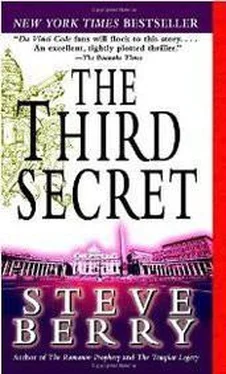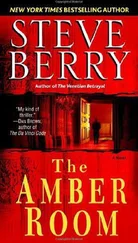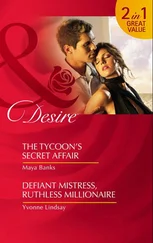His Vatican passport gained entrance into the country without the customary visa fee. He then rented a battered Ford Fiesta from the Eurodollar counter just outside customs and learned directions to Zlatna from an attendant. His grasp of the language was good enough that he understood most of what the red-haired man told him.
He wasn’t particularly thrilled with the prospect of driving around one of the poorest countries in Europe alone. Research last evening had revealed several official advisories that warned of thieves and urged caution, especially at night and in the countryside. He would have preferred enlisting the help of the papal nuncio in Bucharest. One of the staff could serve as driver and guide, but Clement had nixed that idea. So he climbed into the rental car and made his way out of the airport, eventually finding the highway and speeding northwest toward Zlatna.

Katerina stood on the west side of the town square, the cobbles grossly misshapen, many missing, even more crumbling to gravel. People scampered back and forth, their concerns surely more vital—food, heat, water. Dilapidated pavement the least of their everyday worries.
She’d arrived in Zlatna two hours ago and spent an hour gathering what information she could about Father Andrej Tibor. She was careful with her inquiries, since Romanians were intensely curious if nothing else. According to the information Valendrea had provided, Michener’s flight touched down a little after eleven A.M. It would take him a good two hours to drive the ninety miles north from Bucharest. Her watch read one twenty P.M. So assuming his flight was on time, he should be arriving shortly.
It felt both strange and comforting to be back home. She was born and raised in Bucharest, but spent a lot of her childhood beyond the Carpathian Mountains, deep in Transylvania. She knew the region not as some novelized haunt of vampires and werewolves, but as Erdély, a place of rich forests, citadel castles, and hearty people. The culture was a mixture of Hungary and Germany, spiced with Gypsy. Her father had been a descendant of the Saxon colonists brought there in the twelfth century to guard the mountain passes from invading Tartars. The descendants of that European stock had withstood a parade of Hungarian despots and Romanian monarchs, only to be slaughtered by the communists after World War II.
Her mother’s parents were ¸Tigani, Gypsy, and the communists were anything but kind to them, orchestrating a collective hatred as Hitler had done with Jews. Seeing Zlatna, with its wooden houses, carved verandas, and Mughal-style train station, she was reminded of her grandparents’ village. Where Zlatna had escaped the region’s earthquakes and survived Ceau¸sescu’s systemization, her grandparent’s home had not. Like two-thirds of the country’s villages, theirs was ritualistically destroyed, the residents consigned to drab communal apartment buildings. Her mother’s parents had even faced the shameful disgrace of having to demolish their own home. A way to combine peasant experience with Marxist efficiency, the plan was billed. And, sadly, few Romanians mourned the passing of Gypsy villages. She recalled visiting her grandparents afterward in their soulless apartment, the dingy gray rooms devoid of their ancestors’ warming spirits, the essential life drained from their souls. Which was the whole idea. It was later called ethnic cleansing in Bosnia. Ceau¸sescu like to say it was a move toward progressive living . She called it madness. And the sights and sounds of Zlatna resurrected all those ugly memories.
From a shopkeeper, she learned that three state orphanages were located nearby. The one where Father Tibor worked was regarded as the worst. The compound sat west of town and harbored terminally ill children—another of Ceau¸sescu’s insanities.
Boldly, the dictator outlawed contraception and proclaimed that women under the age of forty-five must birth at least five offspring. The result was a nation with more children than their parents could ever feed. The abandoning of infants on the street became commonplace. AIDS, tuberculosis, hepatitis, and syphilis exacted severe tolls. Eventually orphanages sprang up everywhere, all of them little more than dumping spots, the task of caring for the unwanted left to strangers.
She’d also learned that Tibor was a Bulgarian who was nearing eighty—or maybe older, no one really knew for sure—and he was known as a pious man who’d given up retirement to work with children who would soon meet their God. She wondered about the courage it took to comfort a dying infant, or tell a ten-year-old he would soon go to a place far better than here. She didn’t believe any of that. She was an atheist and always had been. Religion was created by man—as was God himself. Politics, not faith, explained everything for her. How better to regulate the masses than by terrifying them with the wrath of an omnipotent being. Better to trust yourself, believe in your own abilities, make your own luck in the world. Prayer was for the weak and the lazy. Not something she’d ever needed.
She glanced at her watch. A little past one thirty.
Time to make her way to the orphanage.
So she headed off across the plaza. What to do once Michener arrived she’d yet to determine.
But she’d think of something.

Michener slowed the car as he approached the orphanage. Part of the drive from Bucharest had been on the autostrada, the four-laned roadway surprisingly well maintained, but the secondary road he’d taken earlier was vastly different, the shoulder ragged, its surface potholed like a moonscape and dotted with confusing signposts that had twice taken him out of his way. He’d crossed the River Olt a few miles back, traversing a scenic gorge between two forested ranges. As he’d driven north the topography had changed from farmland to foothills to mountains. Along the way, he’d seen black snakes of factory smoke curling up on the horizon.
He’d learned about Father Tibor from a butcher in Zlatna, who told him where the priest could be found. The orphanage occupied a red-tiled, two-story building. The pits and scars in its terra-cotta roof bore witness to the bitter sulfur air that stung Michener’s throat. The windows were iron-barred, most of the panes taped their length. Many were whitewashed, and he wondered if it was to prevent people from looking in or looking out.
He motored inside the walled compound and parked.
The hard ground was carpeted with thick weeds. A rusty slide and swing sat to one side. A stream of something black and sludgy bordered the far wall and may have been the source of the foul odor that greeted his nostrils as he stepped from the car. From the building’s front door, a nun dressed in a brown ankle-length dress appeared.
“Good day, Sister, I’m Father Colin Michener. I’m here to speak with Father Tibor.” He spoke in English, hoping she understood, and added a smile.
The older woman tented her fingers and lightly bowed in a gesture of greeting. “Welcome, Father. I did not realize you were a priest.”
“I’m on holiday and decided to leave the cassock at home.”
“Are you a friend of Father Tibor’s?” Her English was excellent and unaccented.
“Not exactly. Tell him I’m a colleague.”
“He’s inside. Follow me please.” She hesitated. “And, Father, have you ever visited one of these places before?”
He thought the question strange. “No, Sister.”
“Please try to be patient with the children.”
He nodded his understanding and followed her up five crumbling stone stairs. The smell inside was a horrid combination of urine, feces, and neglect. He fought a rising nausea with shallow breaths and wanted to shield his nose but thought the act would be insulting. Glass chips crunched beneath his soles and he noticed paint peeling from the walls like skin burned by the sun.
Читать дальше













